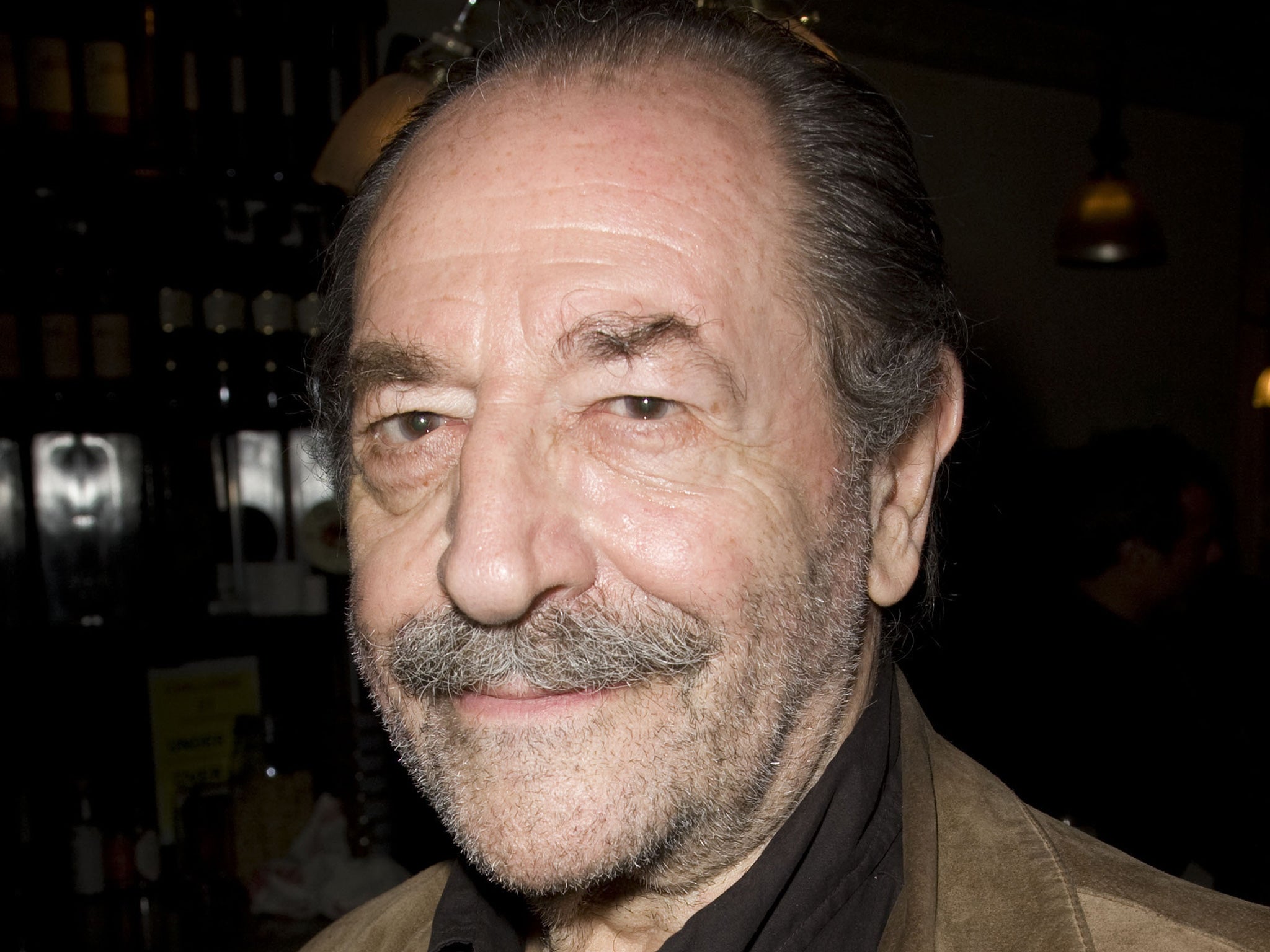Bernard Kay: Character actor who was best known on the big screen in ‘Dr Zhivago’ and who took more than 100 television roles
The classically-trained actor became a familiar face on the small screen

A perennial character actor on screen for more than half a century, Bernard Kay enjoyed his best film role in Doctor Zhivago (1965) as the Bolshevik Kuril, who enthuses: “No more czars, no more masters – only workers in a workers’ state.” The part in director David Lean’s sweeping epic, set against the backdrop of Russia during the First World War and revolution, and based on Boris Pasternak’s novel, was written by screenwriter Robert Bolt, a fellow Lancastrian, with Kay in mind.
But it was on television that the classically trained actor was most familiar, in both drama and comedy. He turned down a regular role in Z Cars but characteristically took seven different guest parts over 10 years (1962-72). There were four roles in Doctor Who and two each in Coronation Street and Emmerdale.
In 1961, after his first Street appearance, as Jim Foster, the guilt-ridden bus driver who fatally ran over Ken Barlow’s mother, Ida, causing the serial’s first on-screen funeral, Kay was paid by Granada to lie low for six weeks for fear of viewers’ reactions. He returned three decades later for a more humorous storyline, playing Clive Phillips (1994), attending the wedding of his sister-in-law, Maureen Naylor, and getting into an argument in the gents’ toilet at the reception with her new husband, Reg Holdsworth, that led to the couple’s honeymoon being cancelled.
It was all drama in Emmerdale. Kay played Robert Sharp (1974-76), who tried to claim half of Joe Sugden’s share in the farm as part of his daughter Christine’s divorce settlement, and Metcalfe (1987), a reclusive farmer found dead in in a field who left his home to Matt Skilbeck. Meanwhile, Doctor Who aficionados recall him as Carl Tyler (1964), a freedom fighter on Earth during a Dalek invasion, Saladin (1965), a Saracen Sultan of Egypt and Syria, Crossland (1967), a detective assisting the Time Lord, and Caldwell (1971), a member of an Earth-based corporation trying to establish mining rights on the planet Uxarieus.
Throughout his long career, Kay, with his imposing frame and gruff voice, was seen by directors as an actor who could always be depended on for a thoroughly professional performance. But he came to acting after the unhappiness of being orphaned as a child and experiencing brutal schooling.
Kay was born in Bolton, the son of Billy, a reporter on the Yorkshire Post, and Edith (née Entwistle). Within months his mother died of an apparent suicide. When Kay was nine his father was admitted to an asylum, his paternal grandparents took over responsibility for him and he started boarding at Chetham’s Hospital School, Manchester.
His experience of the harsh school regime included his house governor caning him with a stick that was split at the end, leaving blood blisters across his hands and making him physically sick. “After a week I’d learned to be quiet and unnoticed,” Kay recalled in his unpublished memoirs, Maybe a Bastard, which won the New Writing Ventures awards’ Creative Non-Fiction Prize in 2006. When he was 12 his father died of kidney disease in the asylum.
Leaving school, Kay followed his father into journalism, becoming a cub reporter on the Bolton Evening News. He was also a stringer for the Manchester Guardian, but started acting while doing National Service (1946-48) in the Army, rising to sergeant in the Royal Artillery.
He then won a scholarship to train at the Old Vic Theatre School in London, and became a member of the company in 1950 when the theatre, damaged in the Blitz, was reopened. He stayed for two seasons before moving to the RSC in Stratford-upon-Avon and London (1953-54), where his roles included Demetrius and Taurus in Antony and Cleopatra, Montano in Othello, Curtis in The Taming of the Shrew, Gregory in Romeo and Juliet and Diomedes in Troilus and Cressida. Repertory experience followed in Nottingham and Hornchurch.
Kay established himself as a prolific screen actor after making his début in Ken Taylor’s ITV play One of Us (1957). There were a couple of dozen film appearances in pictures such as Carry On Sergeant (1958) and Witchfinder General (1968), but he was most in demand on the small screen, taking more than 100 roles.
Alongside the one-offs, he played the lion Aslan in a 1967 adaptation of The Lion, the Witch and the Wardrobe, Tom Sawdon in South Riding (1974), Lord Hertford in The Prince and the Pauper (1976), Ernie Drew in Dick Barton: Special Agent (1979), Hunter Gowan in Scarf Jack (1981-82), Inspector Page in A Very British Coup (1988) and Richard Naismith in Century Falls (1993). His final screen appearance was in an episode of Casualty (2009).
His other theatre work included West End productions of Gentle Jack (Queen’s Theatre, 1963-64) The Beheading (Shaftesbury Theatre, 1971-72), and a further stint with the Royal Shakespeare Company (1991-92) that included the roles of Glendower in Henry IV, Part 1 and Hastings in Henry IV, Part 2.
Kay married the actress Patricia Haines in 1963 and never came to terms with her death from cancer 14 years later. The actor, who once listed his unfulfilled ambitions as “fame and riches”, was found dead at his home after Christmas.
Bernard Frederic Bemrose Kay, actor: born Bolton, Lancashire 23 February 1928; married 1963 Patricia Haines (died 1977); died c. 25 December 2014.
Subscribe to Independent Premium to bookmark this article
Want to bookmark your favourite articles and stories to read or reference later? Start your Independent Premium subscription today.

Join our commenting forum
Join thought-provoking conversations, follow other Independent readers and see their replies